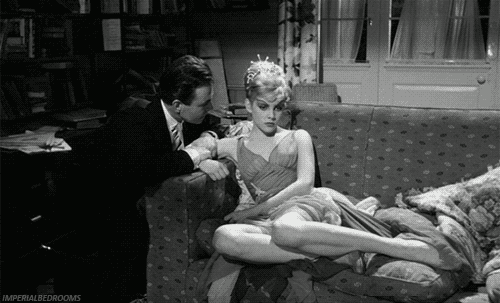Most of us wouldn’t want unreliable people as friends.
After all, unreliability usually implies dishonesty, fickleness, or some sort of unpredictability, none of which are exactly desirable traits to have in a mate.

In fiction, however, unreliability is often what gives the narrative its pizazz. A novel narrated in an unreliable voice keeps readers on tenterhooks and contributes to the ‘suspension of disbelief’, which is what Samuel Taylor Coleridge thought necessary for true engagement with literature.
But given the subjective nature of all writing, where do we draw the line between a ‘reliable’ and an ‘unreliable’ voice?
Does subjectivity per se entail unreliability, since ‘truth’ is always different for different people?
By the way, ‘unreliable narratives’ are usually told from the first-person point of view, because it tends to offer the most room for subjective malleability and fashioning.
The expert’s definition of ‘unreliable narration’
According to the 20th century literary critic Wayne Booth, who first coined the term ‘unreliable narrator’ in his 1961 Rhetoric of Fiction –
A narrator is “reliable when s/he acts or speaks in accordance with the norms of the work (which is to say the implied author’s norms)”, but “unreliable when s/he does not”.
This, to a certain extent, assumes that there are such understood ‘norms’ which an author wishes to convey (and by ‘norms’, they refer to socially accepted morals or ethics, such as the belief that murdering someone is always bad).
But this definition is problematic, because one shouldn’t be expected to always approach a work having foreknowledge of an author’s ‘norm’, and indeed, whether an author even wants to reflect such a ‘norm’ in his or her work is open to question.

A more accessible explanation of ‘unreliable narration’…
At a most basic level, the way to tell if a narrator is ‘unreliable’ is to pay attention to 2 things:
- What other characters say vis-à-vis what the narrator says, and
- Whether the plot develops in a way that aligns with what the narrator says
The notion of reliability also assumes that there must be an objective state of reality, so if we have a mentally deranged narrator, then this must also imply that his or her account of anything beyond the subjective experience is by default ‘unreliable’.

A quick example
To illustrate, let’s check out an imaginary narrator who’s just killed her husband while he’s asleep:
As I stroked my husband’s arm, I was hit by a sudden realisation that he would be much happier elsewhere.
Not with me; not in this world – no. He was suffering, and I had been the sole cause. Since my psychotic relapse, he had stopped living in the truest sense of the word.
The realisation of this hit me when he came home last night, carrying that kind smile of his, with bags of groceries in tow packed to the brim with tins and cans of sacrifice.
In that instant, I knew I had to relieve him of his pain, and before long, his breathing ceased, and I – for once – had done a noble deed.
What’s going on here?
First, the narrator is a home-bound psychotic patient.
We also know that she feels guilty about her husband’s constant care and attention, which she perceives as a source of “suffering” for him, and apparently wishes to relieve him from it all.
Her solution, though, if you’ve already picked up on it, is to murder him. She calls it “a noble deed”, but any rational reader would see the irrationality in her logic, and the incommensurability of her ‘solution’ (killing her husband) to a perceived ‘problem’ (her husband’s sacrifice for his wife).

Besides, we don’t even know if the husband actually feels like “he’s stopped living”, or that he’s unhappy about his situation at all (a “kind smile” could suggest either a genuine or forced willingness to care for his wife).
It could be that the narrator is really the one who feels suffocated by her husband’s attention, and so decides to kill him out of irritation – under the verbal guise of having done a virtuous act.
In any case, readers know that this narrator’s words are to be taken with a pinch of salt.
Key signs of an unreliable narrator
In general, there are several conditions that should raise red flags for unreliability:
- If the narrator is a child
- If the narrator is mentally unstable or straight-up bonkers, or suffers from some sort of memory deficiency
- If the narrator says things that don’t square with what other clues suggest
- If the narrator has a clear agenda about or bias against someone or something
One thing to note: unreliable narrators aren’t always bad or morally questionable characters. They could just be naïve, deluded, misguided, misinformed, or even – too prejudiced out of love, loyalty or other well-intentioned traits.

A classic example of the child-as-unreliable narrator is The Catcher in the Rye’s 16-year old Holden Caulfield, whose teenage angst colours his view of society as a sham, and of all adults as ‘phony’ people.
As for the mentally unstable narrator, a famous specimen is the short story ‘The Yellow Wallpaper’s’ unnamed female narrator, whose clinical depression and long-term house confinement have resulted in her hallucination of “moving things in the wall”.

And just to throw in a dash of ‘narrative theory’ (because theory is cool and why not), two narratology critics – James Phelan and Mary Patricia Martin, have categorised unreliability into 6 types, which are helpful for reference:
- Misreporting
- Misevaluating / misregarding
- Misreading
- Under-reporting
- Under-regarding
- Under-reading
Whereas ‘misevaluating’, ‘misreading’, ‘under-regarding’ and ‘under-reading’ are likely to be unintentional in nature, ‘under-reporting’ leans closer to deliberate unreliability, with ‘misreporting’ being possibly of either nature.
In the rest of this post, I want us to compare two unreliable narrators who come from opposite ends of the moral spectrum: Mr Stevens, the butler in Kazuo Ishiguro’s The Remains of the Day, is my representative of the ‘good’ but unreliable narrator, and Humbert Humbert, the paedophilic stepfather in Vladimir Nabokov’s Lolita, will play the part of my ‘bad’ and unreliable narrator…
…or you can watch me explain in this video:
Reading Kazuo Ishiguro’s The Remains of the Day: “I have chosen to tell white lies”

I’ve previously written a post on Ishiguro’s Never Let Me Go (2005), which is a great novel in its own right, but rather different from his earlier, Booker Prize-winning work, The Remains of the Day (1989).
In fact, they are so different in subject matter, style and voice that one must marvel at the versatility of Ishiguro’s craft.
Set in Interwar period England, Remains is a thoughtful meditation on work and identity, as well as a quasi-sociological examination of the post-war British psyche. (The 1989 film adaptation starring Anthony Hopkins and Emma Thompson is superb, by the way.)

The novel is narrated from the first-person perspective of Mr Stevens, who has worked as a butler at Darlington Hall, an English country house, for almost half a century.
When the novel begins, we see that Stevens’ employer is a jovial American billionaire by the name of Mr Farraday, but a large part of Stevens’ account thereafter is composed of flashbacks to his former years of being a butler to Lord Darlington, an aristocrat whom Stevens had served for thirty odd years.
Our narrator is a staunchly loyal servant – but therein lies the problem: his loyalty tends to get in the way of his judgment, especially when it comes to his evaluation of Lord Darlington’s character.
Underneath the polish and decency of an English gentleman, the Lord is revealed throughout the plot to have harboured pro-Nazi sympathies, as evidenced by his efforts at coordinating appeasement between Neville Chamberlain’s government and Hitler’s Third Reich.

We first find out that Lord Darlington’s bias in favour of the Germans stems from his personal friendship with a WWI German army officer named Herr Bremann, who eventually committed suicide to escape the financial ruin resulting from the reparation demands of the Versailles Treaty.
Stevens’ contextual framing of Lord Darlington’s questionable politics is in itself one of the many examples – albeit a subtle one – of his narrative ‘unreliability’, as it suggests his reflexive urge to justify the Lord’s actions under any circumstance, instead of taking a more impartial, and therefore more reliable, vantage point.
Like a trusty servant, Stevens’ first instinct is to protect his lordship’s posthumous reputation, and to assume the best intentions notwithstanding evidence to the contrary:
‘[Herr Bremann] was my enemy,’ [Lord Darlington] was saying, ‘but he always behaved like a gentleman. We treated each other decently over six months of shelling each other [during the First World War]. He was a gentleman doing his job and I bore him no malice. I said to him: “Look here, we’re enemies now and I’ll fight you with all I’ve got. But when this wretched business is over, we shan’t have to be enemies any more and we’ll have a drink together.” Wretched thing is, this treaty is making a liar out of me. I mean to say, I told him we wouldn’t be enemies once it was all over. But how can I look him in the face and tell him that’s turned out to be true?’ And it was a little later that same night that his lordship said with some gravity, shaking his head: ‘I fought that war to preserve justice in this world. As far as I understood, I wasn’t taking part in a vendetta against the German race.’
And when today one hears talk about his lordship, when one hears the sort of foolish speculations concerning his motives as one does all too frequently these days, I am pleased to recall the memory of that moment as he spoke those heartfelt words in the near-empty banqueting hall. Whatever complications arose in his lordship’s course over subsequent years, I for one will never doubt that a desire to see ‘justice in this world’ lay at the heart of all his actions.
(Ch. 2)
But as the plot develops, we discover that Stevens’ desire to think no ill of Lord Darlington is at least in part a desire to believe that he himself was, indeed, “attached to a distinguished household” (which is what Stevens believes to be a mark of ‘dignity’ – the singular quality he’s striven to attain in his career as a butler).
His doubts about Lord Darlington aren’t, in fact, as non-existent as he claims, and we are shown the best illustration of this in Chapter 3, when Stevens denies having ever served the Lord in his conversation with Mrs Wakefield, one of Mr Farraday’s guests –
I saw that Mrs Wakefield had remained behind and was closely examining the stone arch that frames the doorway into the dining room. As I went past, muttering a quiet ‘excuse me, madam,’ she turned and said:
‘Oh, Stevens, perhaps you’re the one to tell me. This arch here looks seventeenth century, but isn’t it the case that it was built quite recently? Perhaps during Lord Darlington’s time?’
‘It is possible, madam.’
‘It’s very beautiful. But it is probably a kind of mock period piece done only a few years ago. Isn’t that right?’
‘I’m not sure, madam, but that is certainly possible.’
Then, lowering her voice, Mrs Wakefield had said: ‘But tell me, Stevens, what was this Lord Darlington like? Presumably you must have worked for him.’
‘I didn’t, madam, no.’
‘Oh, I thought you did. I wonder why I thought that.’
Of course, Mrs Wakefield thought that because Mr Farraday had told her so, and because it is the truth. We, the readers, also know this to be true, so what’s up with Stevens’ blank-faced denial (or to put it more bluntly – lie)?

Never one to settle for being thought of as undignified, Stevens provides us with a justification of his actions after he gives the account of Mrs Wakefield, which exposes the sort of ‘benign unreliability’ that coats his narrative –
Of course, there are many people these days who have a lot of foolish things to say about Lord Darlington, and it may be that you are under the impression I am somehow embarrassed or ashamed of my association with his lordship, and it is this that lies behind such conduct. Then let me make it clear that nothing could be further from the truth.
The great majority of what one hears said about his lordship today is, in any case, utter nonsense, based on an almost complete ignorance of the facts. Indeed, it seems to me that my odd conduct can be very plausibly explained in terms of my wish to avoid any possibility of hearing any further such nonsense concerning his lordship; that is to say, I have chosen to tell white lies in both instances as the simplest means of avoiding unpleasantness.
This does seem a very plausible explanation the more I think about it; for it is true, nothing vexes me more these days than to hear this sort of nonsense being repeated.
(Ch. 3)
Stevens’ pre-emptive comment about our possible suspicion of his “embarrassment or shame of [his] association with his lordship” is an example of apophasis – the rhetorical technique of bringing up a subject only to deny it.
The truth is that he is, in fact, embarrassed, if not a little bit ashamed and self-conscious about how others may judge him for having been in the employment of a fallen, disreputable figure like Lord Darlington.
And as if his insistence on the “foolishness” and “nonsense” that surrounds Lord Darlington’s reputation isn’t enough to convince us, Stevens reiterates to us his absolute devotion and trust to a supposed “gentleman of great moral stature”, whom he had explicitly dissociated himself from.
Stevens’ vehement justification and self-justification poses another problem for readers: it muddies our understanding of Lord Darlington’s true character.

Filtered heavily through the unreliable lens of blind loyalty and conflicted psychology, the real ‘moral stature’ of Lord Darlington is left uncertain (which is, perhaps, precisely Ishiguro’s intention).
Ultimately, Stevens’ unreliability is but a means to the author’s end of challenging our most fundamental biases and values, and most importantly, our ‘stickiness’ to the many delusions we hold.
Having bought into a belief for so long, are we willing to change our minds when such belief is exposed to be flawed or misguided?
Having been devoted to those whom we’ve held in such high esteem, can we accept that our judgment about them was wrong upon realising that they aren’t the people we thought they were?
Or do we prefer continual self-delusion despite rational awareness, simply because the alternative is nothing less than an assault on our egos?
Reading Vladimir Nabokov’s Lolita: “I have camouflaged what I could so as not to hurt people”

Stylistically, Lolita is (in my opinion) one of the best works of prose in the history of English literature.
But had it not been for the success de scandale over Nabokov’s candid engagement with paedophilia in the book, perhaps it wouldn’t be as well-known and widely read today.
Ironically, the book isn’t at all ‘scandalous’ by most contemporary standards. While people nowadays are a lot less prudish about what can or cannot go into fiction, Lolita remains a controversial work – not so much because it’s about a middle-aged paedophile’s abuse of his teenager stepdaughter (among other, deeper, eh, ideas), but rather, because the wildly unreliable narration complicates our response to a character with paedophilic desires.

That paedophilia is immoral is pretty much a universal view, but what happens when a novelist tries to make us see the paedophile’s ‘side of the story’, or god forbid – empathise with the paedophile? This is where the moral distance between Nabokov and his protagonist further complicates our reception of the book.
Early in the novel, we already know that our protagonist-cum-narrator (pardon the puns), Humbert Humbert, is a man of “sin” who’s presenting his case to a court jury.
He also warns us that “you can always count on a murderer for a fancy prose style”.
The word “murderer” should alert us that the next 300 pages or so is the account of someone whose integrity can’t be trusted, and as such, the validity of whatever he says is going to be flimsy at best, and non-existent at worst.
Throughout the trial, Humbert Humbert relates his memories in highly rhetoricised terms, such as –
“the coloured inks of sensitive memory” (Part 1, Chapter 4)
“I cannot help running my memory all over the keyboard of that school year…” (Part 1, Chapter 9)
“a sensational but incomplete and unorthodox memory” (Part 2, Chapter 18)
“torpid memory… memory refused to supply me with the name of the chateau-lover” (Part 2, Chapter 24)
“the alcohol of a clouded memory” (Part 2, Chapter 33)
“I have still other smothered memories, now unfolding themselves into limbless monsters of pain” (Part 2, Chapter 32)
The fact that Humbert Humbert concedes to having a deficient memory is important for our understanding of his unreliability, because it suggests that his words are most likely to be dishonest.
Despite having sexually abused his stepdaughter Lolita and made her life an utter misery, the narrator works his rhetorical charm, as he contorts, circumvents, prevaricates and stylises his account to such a degree that confuses the spheres of imagination and fact, or blurs the line between what he calls “my fancy and nature’s reality”.

Towards the end of his account, Humbert Humbert conveys a growing sense of remorse, as he realises that the selfishness of his lust has completely ruined Lolita’s childhood and robbed her of a real, loving family (Lolita’s mother, Charlotte, was hit by a car after running out of the house upon reading Humbert’s revealing diary).
Faced with the grossness of his illicit desires and abuse of Lolita, the narrator confesses that even for someone with little conscience, he’s perhaps twisted and coloured his testament a bit too much.
This is seen in Chapter 32, when Humbert Humbert chastises Lolita for bringing up the death of her mother (largely out of his own sense of guilt), after which he reflects in a moment of rare honesty:
Now, squirming and pleading with my own memory, I recall that on this and similar occasions, it was always my habit and method to ignore Lolita’s states of mind while comforting my own base self. When my mother, in a livid wet dress, under the tumbling mist (so I vividly imagined her), had run panting ecstatically up that ridge above Moulinet to be felled there by a thunderbolt, I was but an infant, and in retrospect no yearnings of the accepted kind could I ever graft upon any moment of my youth, no matter how savagely psychotherapists heckled me in my later periods of depression.
But I admit that a man of my power of imagination cannot plead personal ignorance of universal emotions. I may also have relied too much on the abnormally chill relations between Charlotte and her daughter. But the awful point of the whole argument is this. It had become gradually clear to my conventional Lolita during our singular and bestial cohabitation that even the most miserable of family lives was better than the parody of incest, which, in the long run, was the best I could offer the waif.
(Ch. 32)
As usual, Nabokovian prose requires some parsing before one can get to its meat.
For starters, what does Humbert’s mom has to do with anything here? In fact, the narrator is using his mother’s accidental death (from being struck by lightning) to illustrate a simple fact about his character which we already know: he’s not a particularly empathetic person, and is largely incapable of feeling sadness or grief over the misfortunes of others.

Being the sociopath that he is, Humbert Humbert can’t remember having ever felt affection or “yearning” for his dead mother, despite most people’s tendency to do so at the occurrence of such a loss.
The parenthetical remark of “(so I vividly imagined her)” also tells us that he’s prone to sprinkling his narrative with imaginative (read: disingenuous) additions, which he acknowledges with his euphemistic reference to himself as “a man of my power of imagination”.
But by this point in the narrative, the conscientious reader doesn’t need Humbert’s concession of unreliability, because the narrator reminds us time and again throughout his account that we are to trust him at our own peril.
The interesting question, then, is how this affects our perception of this moral monster and rhetorical manipulator.
If his words are not to be wholly trusted, then did he perhaps do worse things which he has chosen to omit from his account?
Or on the contrary, did he imagine at least some of the exchanges between himself and Lolita, for the purpose of cinematising his account into some form of spectator sport, in which case perhaps Nabokov is implicating his readers – us – as voyeurs of illegitimate lust?
Again, we see that the unreliable narrator’s great value is in reflecting and questioning the reader’s own status, both as consumers of information and as recipients of stories.
Are we always led to believe what we hear, or do we instead will ourselves into believing what we want to hear?


